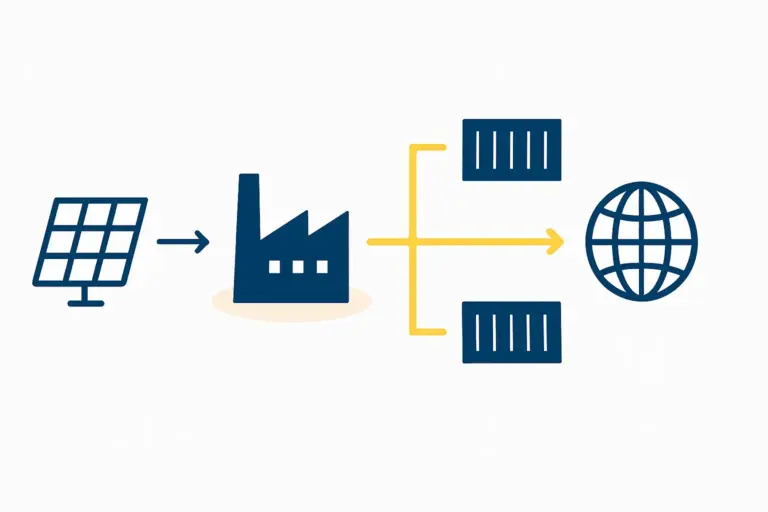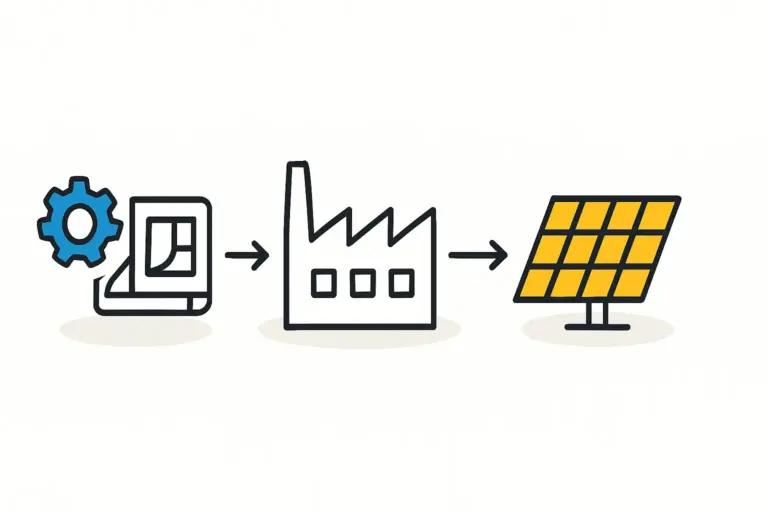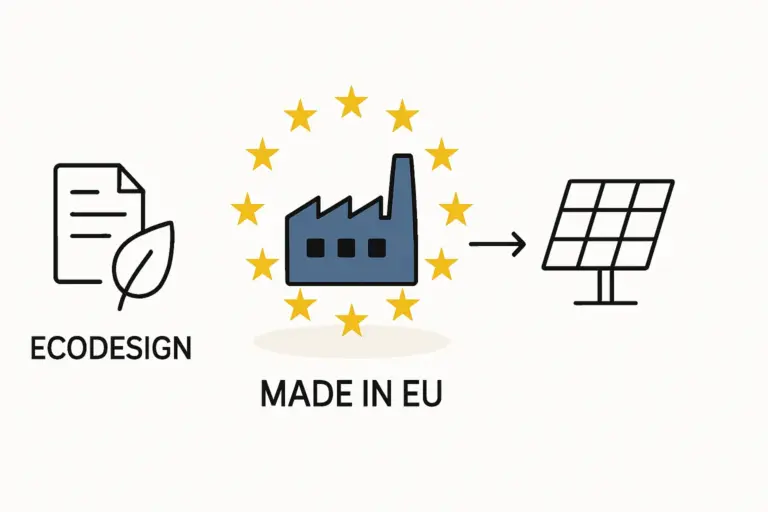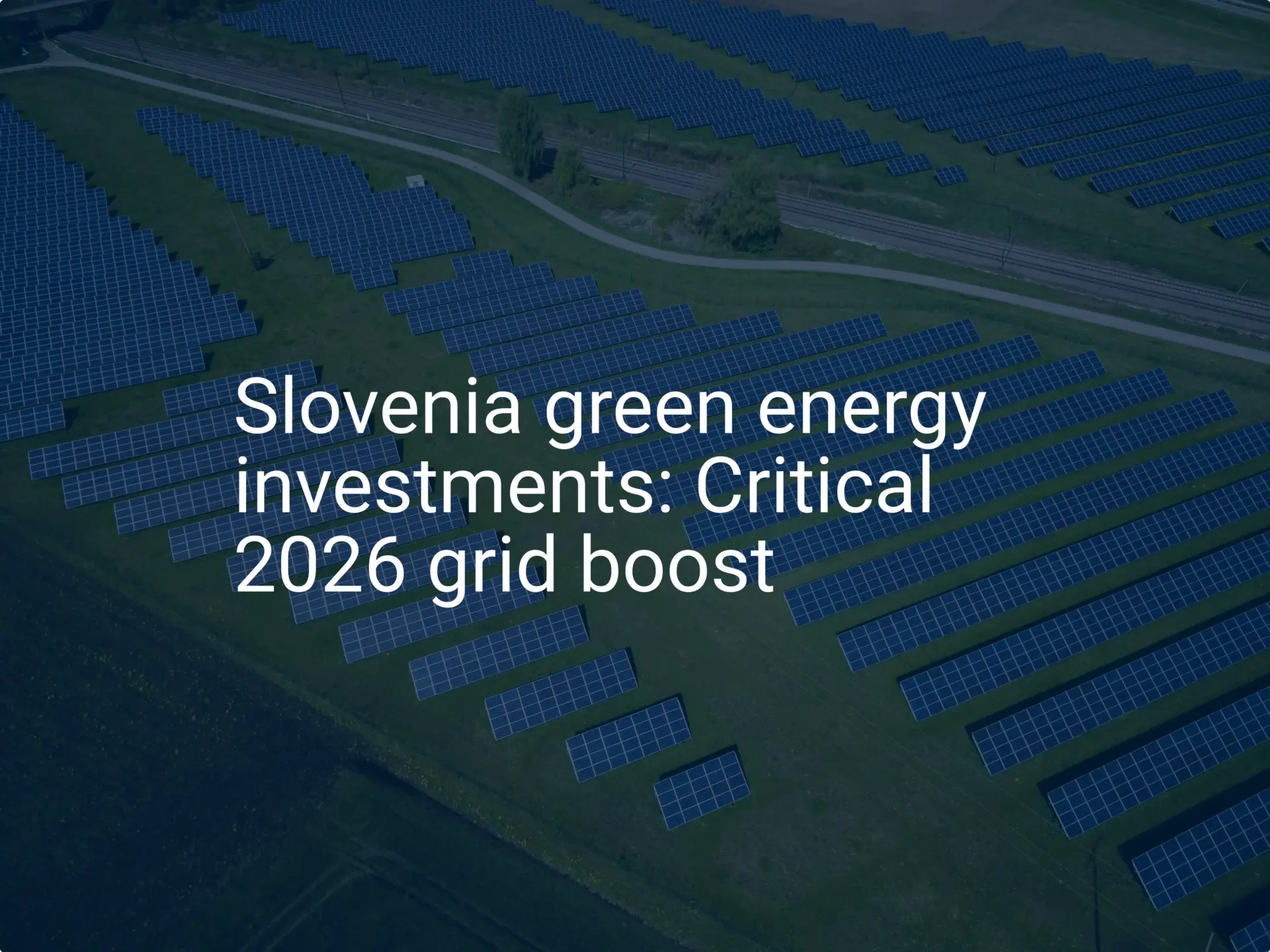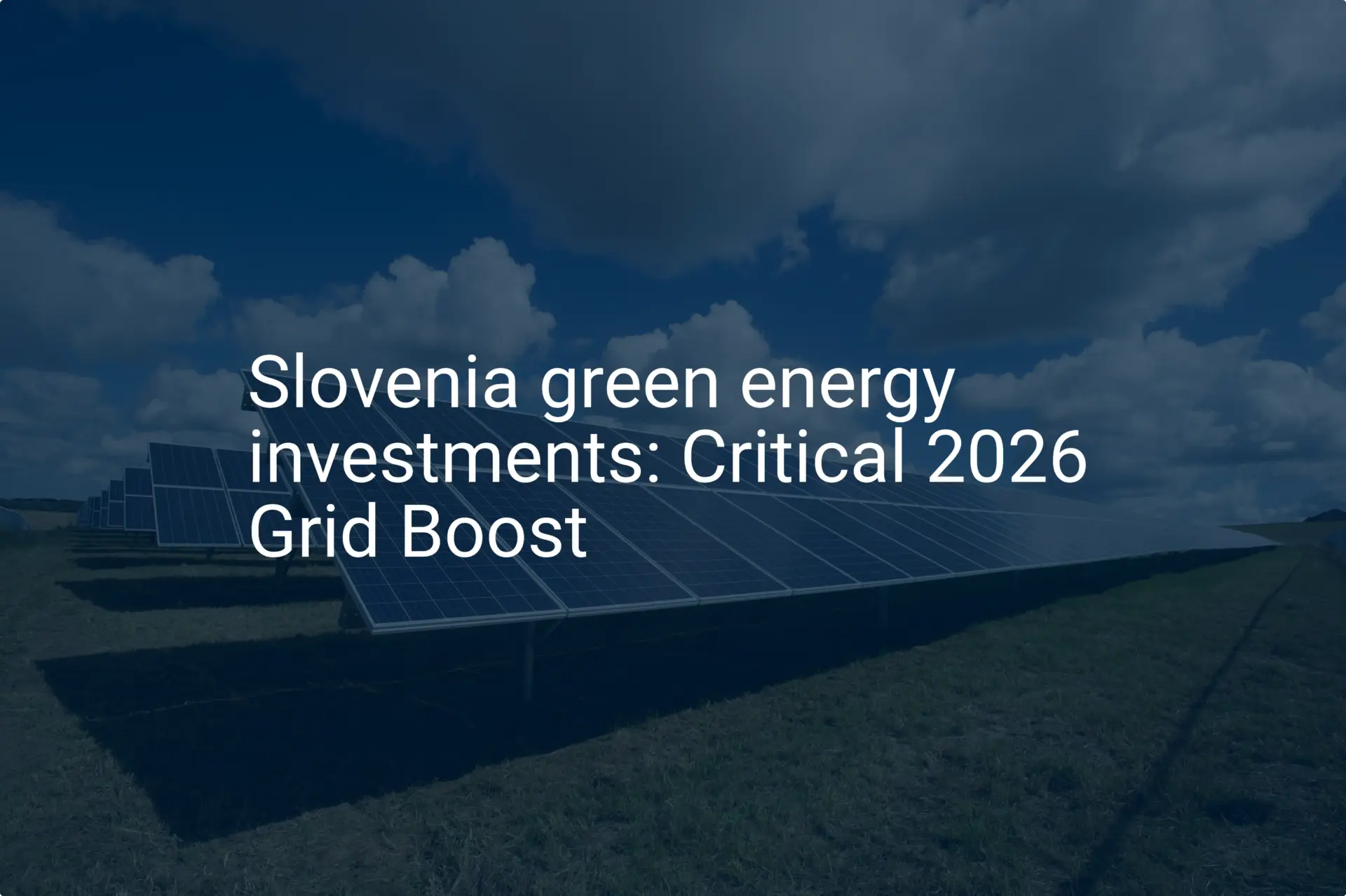Entrepreneurs entering the solar manufacturing sector often focus intensely on technology and equipment. Yet a frequently overlooked factor can be the deciding one for a project’s financial viability: national investment incentives.
For those considering a European base, Slovenia presents a compelling case, not only because of its strategic location but also for its structured support of foreign investors. The country’s ‘Act on Investment Promotion’ offers a clear pathway to securing government support, provided applicants follow a precise and thorough process.
This guide breaks down how to access these incentives for a solar module manufacturing project. It clarifies the eligibility criteria, application process, and key documentation, making a complex legal framework more approachable.
Why Slovenia? A Strategic Hub for Green Technology
Before examining the incentive program, it helps to understand Slovenia’s strategic value. Situated at the crossroads of Central and Southeast Europe, the country offers logistical advantages for accessing both established EU markets and emerging markets in the Balkans. It combines a highly skilled technical workforce with a stable political and economic infrastructure, making it an attractive location for high-value manufacturing.
The Slovenian government is actively positioning the nation as a hub for green technologies, including renewable energy. This national policy is the driving force behind the incentives offered through its primary business development agency.
Understanding the Act on Investment Promotion (ZSInv)
The framework governing these incentives is the Zakon o spodbujanju investicij (Act on Investment Promotion), commonly abbreviated as ZSInv. The program is administered by SPIRIT Slovenia, the public agency for entrepreneurship, internationalization, foreign investment, and technology.

The Act’s core purpose is to stimulate economic growth, create high-quality jobs, and promote regional development by co-financing strategic investment projects. For an international solar investor, this means the government can provide direct financial support to establish a new production facility.
Types of Incentives Available for Solar Manufacturers
The support offered is not a single grant but a portfolio of incentives, which can be combined depending on a project’s scale and impact. The primary forms of support include:
-
Direct Financial Grants: This is the most sought-after incentive. The government may provide a non-repayable cash grant to cover a percentage of eligible investment costs. Eligible costs typically include purchasing new machinery, constructing or renovating buildings, and acquiring intangible assets like patents. For strategic projects, this grant can cover up to 25% of the total eligible expenditure.
-
Corporate Tax Credits: Investors may qualify for a reduction in their corporate income tax liability, which can be carried forward for several years. This significantly improves a project’s long-term profitability.
-
Subsidies for Job Creation: As the program aims to create employment, financial support is often tied to the number of new full-time positions created. Additional subsidies may be available for training this new workforce, ensuring the facility is staffed with qualified personnel from day one.
Eligibility Criteria: Does Your Project Qualify?
SPIRIT Slovenia evaluates projects against a strict set of criteria to ensure they align with national strategic goals. A solar module manufacturing project is well-positioned to meet these criteria, but the application must clearly demonstrate compliance.
-
Minimum Investment Threshold: The project must meet a minimum investment value in fixed assets. While this can vary by region, a typical threshold is an investment of at least 500,000 EUR.
-
Job Creation Requirements: The project must create a specified number of new full-time jobs within a three-year period. For a small to mid-sized factory, this often means creating at least 25 positions.
-
Sector Focus: The investment must be in a strategic sector, such as high-technology manufacturing or green energy. Solar panel production fits perfectly within this definition.
-
Financial Stability: The applicant must prove they have secured the majority of the project financing. The government grant is intended to supplement, not replace, private investment. A robust financing plan is a prerequisite.
-
Regional Development: Slovenia prioritizes development in specific regions. Locating a factory in one of these designated areas can significantly increase the chances of approval and the amount of aid received.
The Application Process: A Step-by-Step Breakdown
Navigating the application process requires careful planning and attention to detail. The process typically follows five phases.
Step 1: Initial Consultation and Letter of Intent
The process begins with an informal consultation with representatives from SPIRIT Slovenia. This meeting is an opportunity to present the project concept and receive initial feedback. Following this, the investor submits a formal Letter of Intent (LOI) outlining the scope, estimated investment, and job creation potential of the proposed factory.

Step 2: Preparing the Investment Proposal
This is the most demanding phase. The applicant must prepare a comprehensive investment proposal, essentially a highly detailed business plan. This document must include a market analysis, technical specifications of the production line, a detailed financial model, and a human resources plan. The quality and thoroughness of the business plan are the primary factors determining success.
Step 3: Formal Submission to SPIRIT Slovenia
Once compiled, the complete proposal and all supporting documents are formally submitted to the agency, entering the official review queue.
Step 4: Evaluation and Due Diligence
SPIRIT Slovenia’s expert committee evaluates the proposal against the ZSInv criteria. This involves a rigorous due diligence process to verify financial projections, assess the project’s technical feasibility, and confirm its alignment with national strategic goals. The committee may request additional information or clarification during this stage.
Step 5: Government Approval and Contract Signing
If the evaluation is positive, the committee recommends the project for approval, and the final decision is made at the government level. Upon approval, a formal contract is drafted between the investor and the Republic of Slovenia, detailing the grant amount, disbursement schedules, and the investor’s obligations. The entire process, from LOI to contract signing, typically takes six to nine months.
Common Pitfalls and How to Avoid Them
Experience from turnkey projects in various countries highlights several common mistakes that can delay or derail an application.
-
An Incomplete Business Plan: Applications are often rejected because the business plan lacks sufficient detail, particularly in its financial projections and market analysis. The plan must be investment-grade, not a conceptual outline.
-
Unclear Financial Backing: Applicants must clearly demonstrate that the majority of the funding is secured. A letter of intent from a bank or proof of equity is essential. Vague statements about future fundraising are insufficient.
-
Ignoring Regional Priorities: Failing to consult regional development maps and align the project with a specific municipality’s needs is a missed opportunity. Engaging with local authorities early can build support for the project.
-
Underestimating Timelines: The process requires patience. Investors should factor the six-to-nine-month approval timeline into their overall project schedule for setting up their turnkey production line.
Frequently Asked Questions (FAQ)
Q: Can a 100% foreign-owned company apply for these incentives?
A: Yes. The Act on Investment Promotion is specifically designed to attract foreign direct investment. The applicant company must be registered in Slovenia, but its ownership can be entirely foreign.
Q: What are the reporting requirements after receiving a grant?
A: The investor is required to submit regular progress reports to SPIRIT Slovenia detailing expenditures, hiring progress, and production milestones. These obligations are clearly defined in the grant contract and typically last for five years after the project’s completion.
Q: Is professional assistance required to complete the application?
A: While not mandatory, engaging local legal and financial advisors familiar with the ZSInv process is highly recommended. Their expertise can help avoid common errors and ensure the application is as strong as possible. Turnkey partners often assist their clients in preparing the technical and operational sections of such proposals.
Q: What happens if the project fails to meet the job creation targets?
A: The grant contract includes clauses regarding non-compliance. If the investor fails to meet the agreed-upon targets for investment or employment without a valid reason, the government may be entitled to a partial or full repayment of the grant.
Next Steps for Exploration
Securing investment incentives in Slovenia requires a methodical and professional approach. The process begins not with the application itself but with creating a robust and credible business plan—the foundation of the entire project. By understanding the government’s objectives and clearly demonstrating how a solar manufacturing facility aligns with them, an investor can unlock significant financial support and build a powerful competitive advantage from day one.



